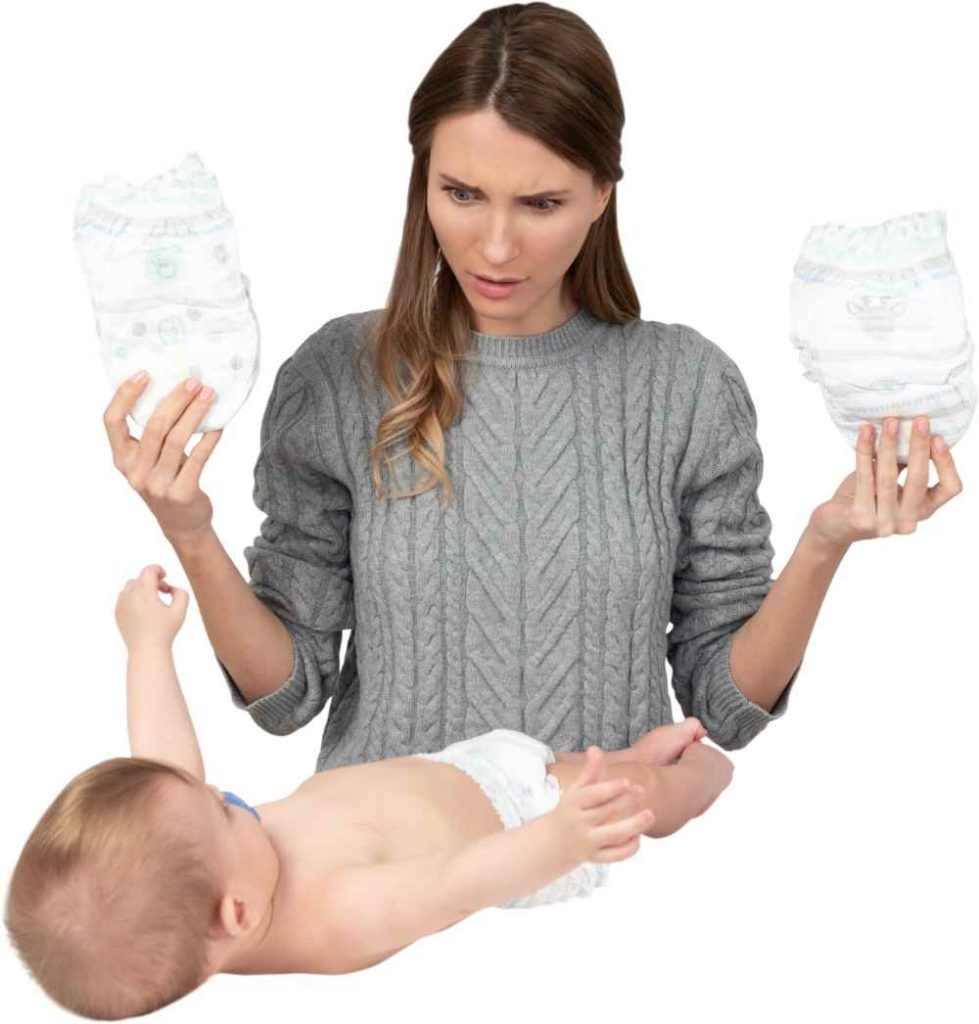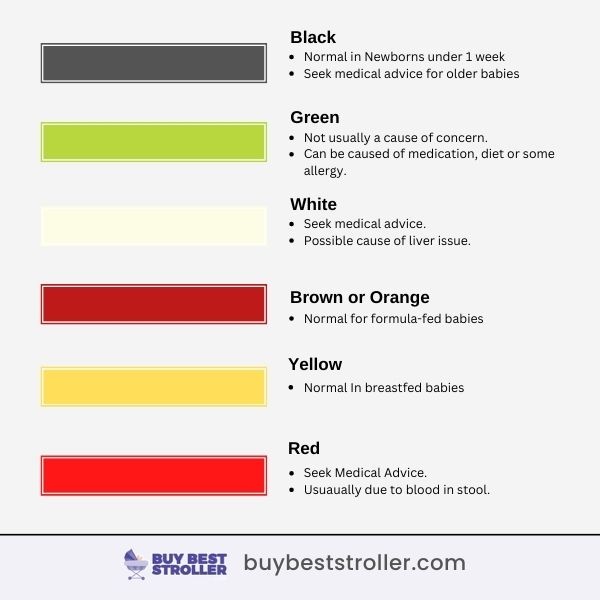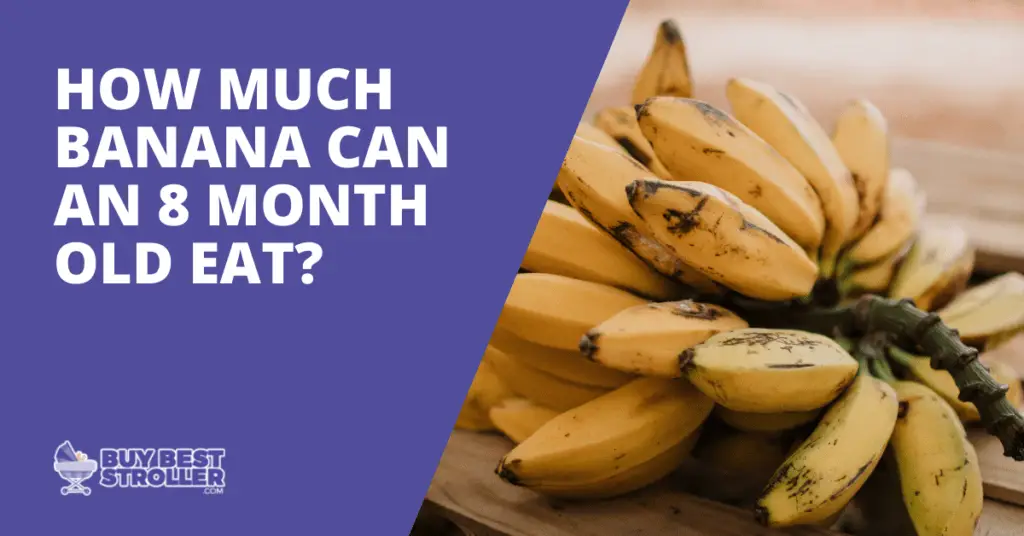The color and smell of the little one’s poop help reflect the health of a baby. Poop checking is a very essential step for parents because the poop color will suggest whether the baby’s health is normal or not.
Parents’ job is very challenging right after the addition of a new member in the family. According to pediatric experts, the digestive system of young children is still very immature, incapable to absorb nutrients entirely.
Baby poop alters almost every day based on the little one’s condition of health and food consumption. Therefore, the state of infant stools with a mild sour smell is a normal sign that parents can bear at home without being too anxious.
An infant’s poop varies in color and texture during their first few days, weeks, and months of life.
Why Do Babies Poop Smells Sour?
If your baby’s poop is smelling sour, it could be caused by lactose intolerance, malabsorption, teething, Crohn’s disease, food allergies, rotaviruses, or cystic fibrosis.
Your baby’s poop smell may be sour or acidic if he is not digesting his solid foods properly or whenever bacteria have entered your infant’s gut, that’s why smells begin to form. Due to these bacteria, babies start emitting odor when they poop.
It is usually normal so you don’t need to worry when your baby’s poop has a smell. But it is important to pay more attention if the smell is too pungent or acidic. Sometimes the poop smells like vinegar.
Why do babies’ poop smell like vinegar?
Babies’ poop smells like vinegar due to various reasons, one of which is acid reflux. Suppose your baby’s poop smells like vinegar then this could be due to indigestion that causes the accumulation of stomach acid.
Babies’ poop smells like vinegar when the digestive system is not working correctly, this could be a symptom of some diseases.
Formula-fed babies often have a sour smell when they poop. Several factors may be responsible for this including lactose intolerance, food allergies, or some metabolic disorders.
In 24 hours, one to two bowel motions is typical for newborns. The Baby’s bowel movements increase in number during the day, but they may be less frequent at night.

Types of Baby Poop Smells
There are a few types of baby poop smells that occur commonly.

1. Newborn’s First Poop (Meconium)
A newborn’s first bowel movement is meconium. In the first 24 hours of life, almost every newborn passes a meconium stool. This black-green substance is extremely sticky, more like tar than a turd.
You may find it difficult to wipe it clean at all. According to Robin Williams, meconium looks like a cross between Velcro and toxic waste. However, it is completely normal.
Newborns have nearly no gut bacteria that causes smelly poop. Meconium begins changing color and texture after two to four days, indicating that it is now a transitional stool.
You can expect a lighter color (think army green) and a less sticky texture. Your child’s poop shows that her/his intestinal tract is working, and she/he is digesting breast milk or formula milk.
Many babies struggle to pass meconium even after birth due to blockages. Your doctor will look for problems if your baby doesn’t have its first bowel movement within 24 hours.
Some of these include a poorly developed anus, intestinal blockages, and meconium plugs (stuck stools).
2. BreastFed Baby’s Poop Smell
It is normal for breastfed babies to have loose poop that is sometimes grainy or seedy. “Seeds” are undigested milk fats, which is normal.
Breastfed babies usually have light-to-medium brown, green, or yellow poop. It is common for newborns to pass whitish, yellow, or pale seeds in their poop.
Breastfed babies’ poop smells quite mild but for babies who have breast milk and formula, the smell may be more strong.
There is no threat to your baby when he/she has a sweet-smelling poop. The sugar that your body produces during the process is called stercobilin, which is responsible for the sweet smell during the feeding of your baby.
However, if the smell of your baby’s poop is very strong and sour, it may be due to some other reason like lactose intolerance. Poop may smell stronger and more unpleasant when a baby shifts to solids.

3. Formula-Fed Baby’s Poop Smell
Formula-fed poop is different than breastfeeding poop. Formula-fed infants have more solid poop in comparison to those who are breastfed.
They smell a bit. This is because Formula milk has larger particles than breast milk, so it takes longer to process. The poop stays longer in the gut and passes more slowly.
These are typically browner in color and have a denser texture – they may have a yellow-brown, tan-brown, or greenish-brown shade. Many people compare it to peanut butter.
Additionally, formula-fed babies pass fewer bowel movements, sometimes only every two to three days, but they’re significantly larger.
Your baby’s health is very dependent on the food they consume.
5 Different Smells and What They Might Mean
1. Babies poop Smells Like Rotten Eggs
Rotavirus is known for its characteristic rotten-egg smell. This may indicate how long the poop sat in bacteria in the baby’s gut. If poop stays in large intestines too long, bacteria will grow and cause a rotten egg smell.
2. Babies poop smells Like Fish
The Baby’s poop smells like fish when the baby has an infection such as cholera. Acute watery diarrhea and dehydration are some of the symptoms of cholera.
To diagnose this condition, your doctor will ask how often your baby pooped, what color the poop was, and when the stinky poop began.
3. Babies poop smells Like Metal
Baby poop may smell metallic when your baby is dehydrated, it can raise the mineral levels in the urine, making the urine smell metallic.
Dehydration can also cause less frequent wet diapers, dark yellow urine, lethargy, listlessness, and a sunken soft spot on your baby’s head. Whenever you see these symptoms, you should seek medical advice.
4. Babies poop smells Like Ammonia
Baby poop smells like ammonia because of an unchanged diaper soaked with urine or poop. When urine mixes with poop it can produce a distinct smell due to ammonia.
5. Babies poop smells Like Popcorn
Your Baby poop can sometimes smell like buttered popcorn, cakes, or even bread. Breastfed babies usually produce sweet, popcorn-smelling poop.
You don’t need to worry if you are breastfeeding or if you are experiencing this issue. However, As a result, the ketone level in the blood will rise due to high protein. When these ketones leave the body in the urine, the urine may smell sweet or similar to popcorn. Researchers from the University of Nebraska Medical Center estimate that breastfed babies’ poop will often smell sweet (like popcorn).
How often should baby poop?
The pooping patterns of babies differ widely. Some poop after every meal, while others only do so once or twice a week. You should make sure that your baby poop comes out reasonably soft.
It is normal for breastfed newborns to poop after every feeding (roughly 6 to 10 times a day), but after three to six weeks, they usually slow down and do not have bowel movements as frequently.

A breastfed baby may only have one bowel movement each week. It works in this way because breast milk passes without leaving much solid waste.
Formula-fed babies usually poop three to four times daily, but some go as long as three or four days without doing so.
You need not worry if your baby’s pooping pattern stays reasonably consistent and he behaves normally.
When Should I Call The Doctor?
If the following changes occur in your baby’s poop, call your pediatrician.
- When your baby poops, he or she cries.
- You notice blood in your child’s diarrhea.
- After taking in new food, your baby’s stool changes significantly. These solid foods cause sensitivities or allergies.
- When your child is 1 year old, they have runny poop (Five or more times a day, your baby passes watery stools).
- Your baby’s poop looks black when it is too old for meconium.
- Mucus in the poop suggests infection or malabsorption in your baby.
- Your baby’s tummy feels hard to the touch.
Takeaway;
The newborn will pass the first stool when starting living on this earth, the first passed stool is known as meconium a dark green, almost black, sticky poop. The changes in color and consistency depend on feeding either breastfeeding or formula milk.
The problem or concern with the poop starts when it is white or gray, stringy, runny, or hard pebbles. These might indicate a problem, so it is good to consult your doctor. Don’t worry!!




